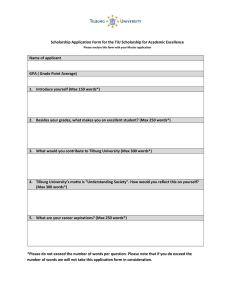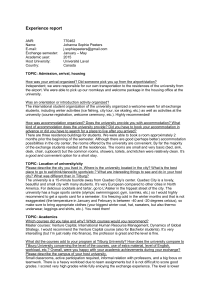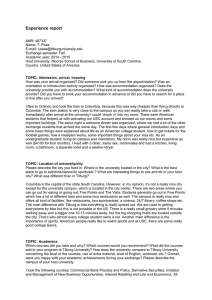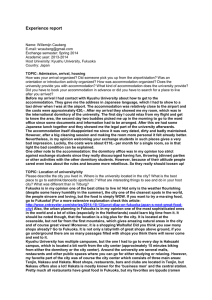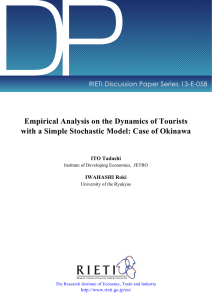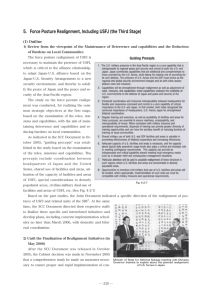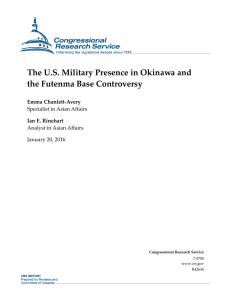Experience report Name: Bas Hoogervorst E-mail:
advertisement
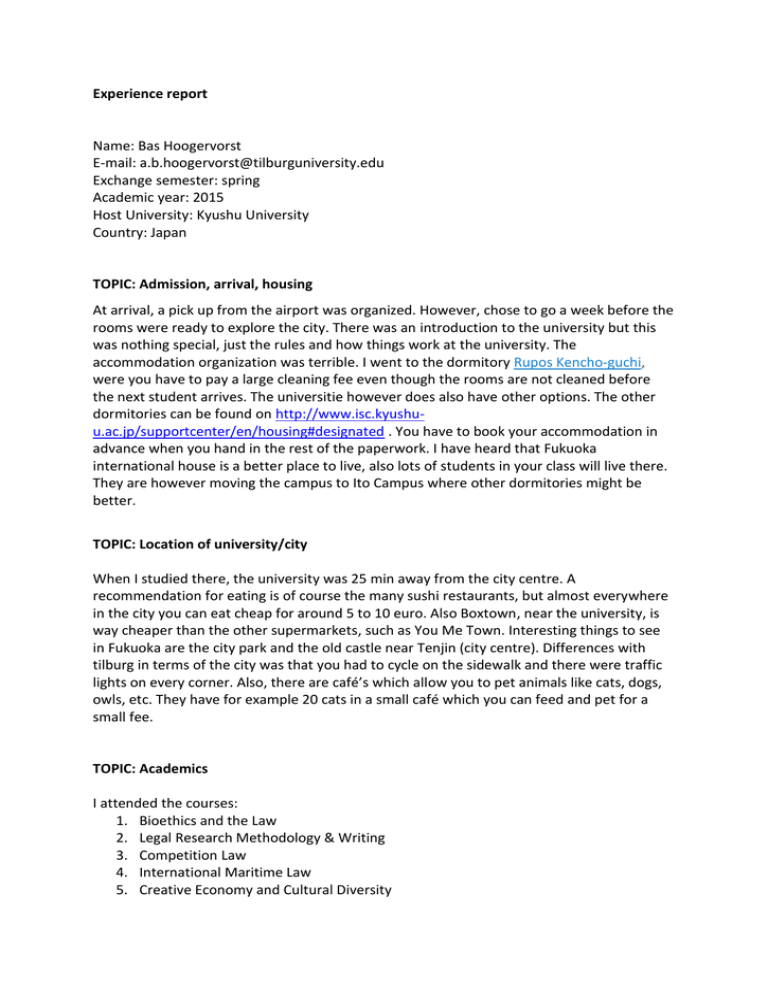
Experience report Name: Bas Hoogervorst E-mail: a.b.hoogervorst@tilburguniversity.edu Exchange semester: spring Academic year: 2015 Host University: Kyushu University Country: Japan TOPIC: Admission, arrival, housing At arrival, a pick up from the airport was organized. However, chose to go a week before the rooms were ready to explore the city. There was an introduction to the university but this was nothing special, just the rules and how things work at the university. The accommodation organization was terrible. I went to the dormitory Rupos Kencho-guchi, were you have to pay a large cleaning fee even though the rooms are not cleaned before the next student arrives. The universitie however does also have other options. The other dormitories can be found on http://www.isc.kyushuu.ac.jp/supportcenter/en/housing#designated . You have to book your accommodation in advance when you hand in the rest of the paperwork. I have heard that Fukuoka international house is a better place to live, also lots of students in your class will live there. They are however moving the campus to Ito Campus where other dormitories might be better. TOPIC: Location of university/city When I studied there, the university was 25 min away from the city centre. A recommendation for eating is of course the many sushi restaurants, but almost everywhere in the city you can eat cheap for around 5 to 10 euro. Also Boxtown, near the university, is way cheaper than the other supermarkets, such as You Me Town. Interesting things to see in Fukuoka are the city park and the old castle near Tenjin (city centre). Differences with tilburg in terms of the city was that you had to cycle on the sidewalk and there were traffic lights on every corner. Also, there are café’s which allow you to pet animals like cats, dogs, owls, etc. They have for example 20 cats in a small café which you can feed and pet for a small fee. TOPIC: Academics I attended the courses: 1. Bioethics and the Law 2. Legal Research Methodology & Writing 3. Competition Law 4. International Maritime Law 5. Creative Economy and Cultural Diversity 6. Comparative Corporate Law 7. International Law in Today’s World 8. Law, Innovation and Economic Growth I also did Private international Law. This course also had a nice trip for a weekend to another city with onso’s. I would definitely recommend the trip, but you are only able to go if you follow this course. I however chose not to do the exam because I had already successfully completed 8 courses. I would recommend the Courses 1, 3,5 and 8 on the list because the course content and the professors are really good. Number 3 is a Belgium professor so he also speaks Dutch and number 8 is a Professor form Tilburg University Eric Vermeulen. Number 6 was not that good, because the teacher does nothing. Every lecture, students are just presenting and teaching it the course instead of the teacher himself. The courses where very different from those at Tilburg University, as they show how other people from around the world see the law and how different they handle the law. I was glad that I did 8 courses. TOPIC: Social life There are no social activities organized by the university. I also did not have contact with the local students, because their English skills are not really sufficient. The contact with the other students was good, I met people from around the world and made new friends. However, when you are coming in the spring semester most people have already been there for 6 months and already have good friend and made groups of friends. I have visited Kagoshima with a friend I met there, where we climbed a volcano. My girlfriend also came by and stayed for 2 months and I travelled with here to Seoul, the capital of South Korea. I would definitely recommend this city because of its friendly people with high English skills, beautiful sights and cheap flights. I also went to Okinawa, which I would not recommend. Not Okinawa itself, but the other islands near Okinawa are beautiful. But in order to visit those islands, you will have to make relatively high additional costs. I used the cheap flights from peach air to get to Okinawa. I also visited Vietnam, which is also a really nice country. I think the best country I visited was South-Korea. TOPIC: Living costs I financed my exchange period by saving and working a lot before I went there. I paid 300 euro per month and 300 euro per month on food. For the courses I took, you did not have to buy textbooks. The living expenses are similar to those in Tilburg, this is mainly because you eat out more while eating out is cheap. I would advise to buy an electric oven so you can cook easily at home. TOPIC: Culture The culture is very different from ours. The Japanese people are really polite and nice but mainly focused on Japan and not on the rest of the world. I learned that my own culture is more orientated on the rest of the world. I did not like it that almost nobody can speak English while in countries, like South Korea and Vietnam, the people speak fluently English. TOPIC: Personal development and tips for future students If I would go on an exchange again, I would lean Japanese before I would go and I also would highly recommend doing this to future students. I will never forget all the things I have seen and all the travelling I did with my girlfriend. The most important lesson I have during my exchange period, is that a lot of differences between culture and thus in OMGAAN with people. I would highly recommend an exchange here if you speak a bit of Japanese. Otherwise, countries like South-Korea would be a better choice.
